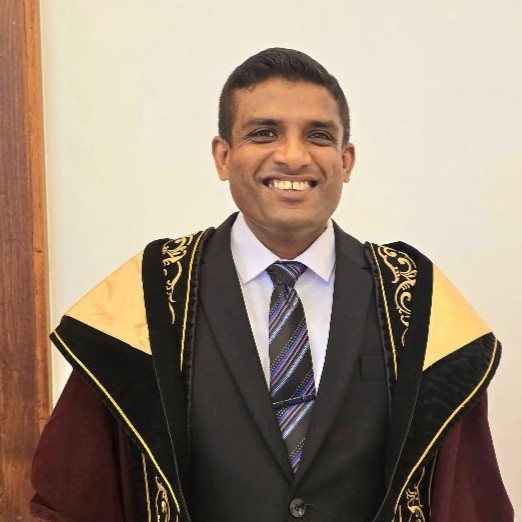
Dr Inuka Wijegunawardana
MBBS MD Cert EM ACEM MRCEM
Emergency medicine stands at the crossroads of innovation, resilience, and collaboration. As we embark on this council's term, our vision is guided by three core principles: education, sustainability, and strengthening the foundations of emergency care across Sri Lanka.
Education and continuous improvement are the cornerstones of our mission. By prioritizing training and professional development, we aim to empower healthcare teams to deliver the highest standards of care. Through innovative learning opportunities and collaborative efforts, we enhance individual skills and strengthen the collective capacity of emergency care professionals. These efforts are essential not only for addressing the immediate needs of our patients but also for building a resilient and adaptable emergency care system capable of navigating future challenges.
A pressing concern for our specialty is the ongoing loss of talented colleagues to migration. This issue has significantly impacted our ability to sustain critical programs, forcing us to scale back initiatives due to limited manpower. Recognizing this, the council is dedicated to addressing the underlying causes of this trend. By improving working conditions, creating opportunities for professional growth, and providing better support, we aim to help our colleagues remain within the country. While solutions take time, the introduction of cluster care systems is a proactive measure to ensure patients continue to receive coordinated and effective care. Retaining our healthcare professionals is vital for strengthening our system and securing a brighter future for emergency medicine.
In a rapidly interconnected world, global emergency medicine plays a pivotal role in bridging disparities in healthcare access and outcomes. Our council is committed to embracing this concept by fostering collaborations that extend beyond national boundaries. By engaging with international colleagues, we seek to share knowledge, adapt best practices, and create solutions tailored to the unique challenges of our region. This includes leveraging global expertise to enhance prehospital care systems, disaster preparedness, and resource-limited emergency settings. Through these partnerships, we aim to position Sri Lanka as an active contributor to the global emergency medicine community while ensuring that lessons learned globally are applied locally to improve patient outcomes.
Sustainability is the foundation of all we do. From optimizing resource allocation to creating systems that endure, our vision is to ensure that emergency medicine continues to thrive. By focusing on lasting solutions, we aspire to secure a future where emergency care remains accessible, efficient, and resilient for all.
Together, through shared vision and dedication, we can overcome challenges and create a legacy of excellence that will serve our patients and communities for generations to come. Thank you for your trust and support as we navigate this important journey.
